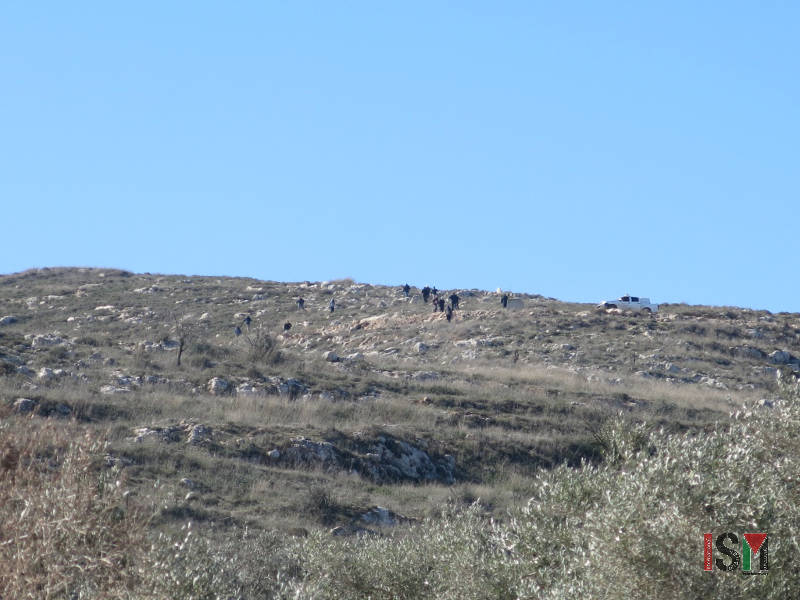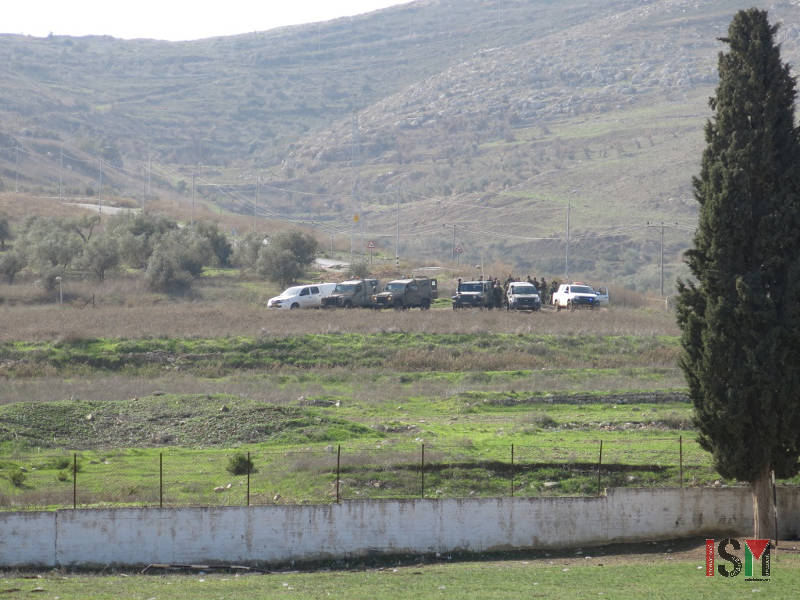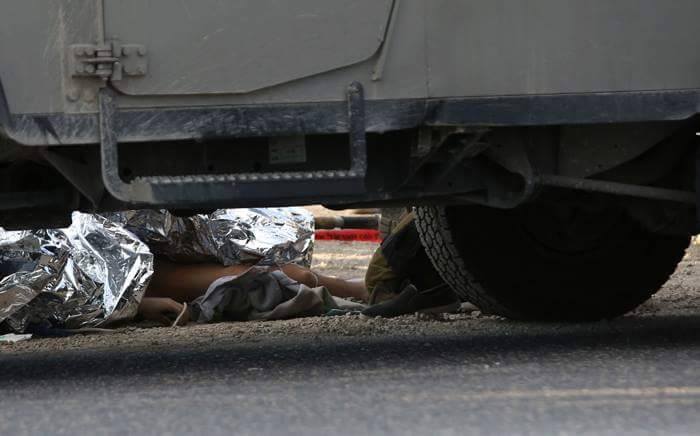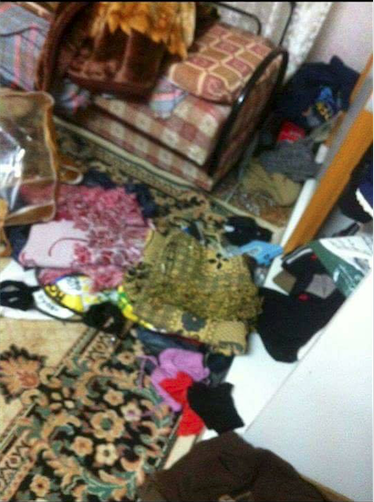Category: Nablus
-

Fifteen masked settlers attack olive field in Burin
24th november 2015 | International Solidarity Movement, Nablus team | Burin, occupied Palestine On November the 24th at approximately 10 am, fifteen masked settlers from the Yitzhar settlement near Burin, south of Nablus, rushed toward an olive field where four Palestinians and two internationals were harvesting. Twenty minutes earlier, the Yitzhar security car, which is usually driven by the head…
-

Settlers from Yitzhar attack boys’ school in Burin and scare students
24th November 2015 | International Solidarity Movement, Nablus-team | Burin, occupied Palestine On Sunday at 10 am, November 22th, approximately twenty settlers from Yitzhar settlement attacked a boys’ school in the village of Burin, south of Nablus. According to local officials, the settlers attempted to raid and attacked the school with stones. Palestinian News and Info Agency (WAFA) reported…
-

Palestinian teenager killed and woman critically injured after being shot in the head at Huwwara checkpoint
Yesterday, November 23rd, Israeli forces shot dead a Palestinian teenager at the Huwwara checkpoint south of Nablus. Samah Abd al-Mumen Ahmad, a Palestinian woman who was shot in the head in the crossfire as she drove past the scene, is currently in the hospital in critical condition. The incident occurred only 24 hours after the last killing at…
-
Once again, Israeli forces raid Nablus homes
19th november 2015 | International Solidarity Movement, Huwwara team | Tell, occupied Palestine Early morning today, November 19th, at around 1:30 am, Israeli forces raided approximately twenty homes in the village of Tell, Nablus, destroying furniture, televisions and other household items. Mohammed, 73 year old citizen of Tell, describes that soldiers were shooting tear gas, live ammunition and…
-
Palestinians banned from land as Route 60 expands
17th november 2015 | International Solidarity Movement, Huwwara team | Burin, occupied Palestine On monday morning, Mahmoud Yasser Eid, a 22 year-old palestinian from the village of Burin, was stopped by the Israeli forces as he went to pick olives with his mother, near the Huwwara checkpoint. The land, that the family has been harvesting…


